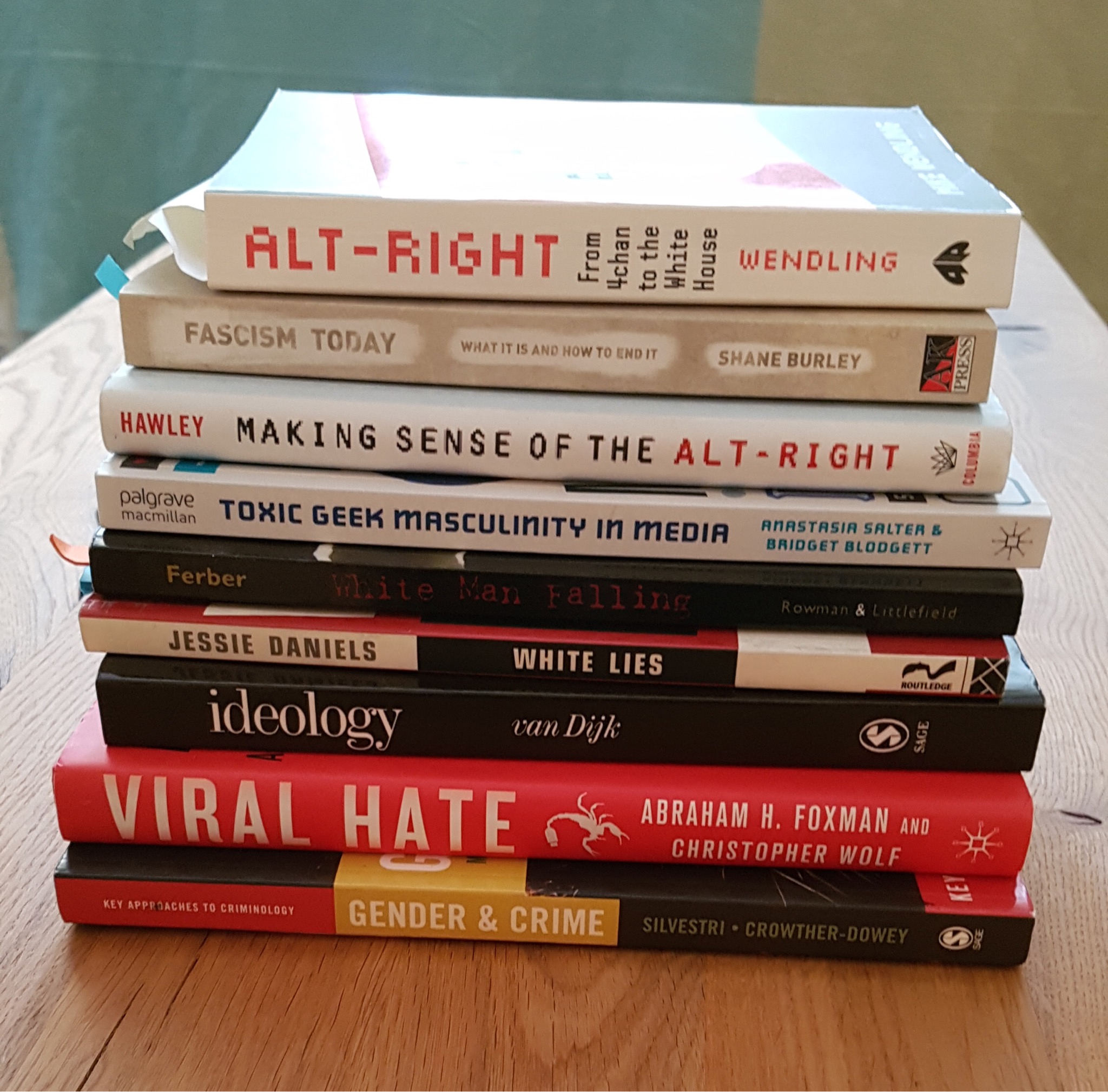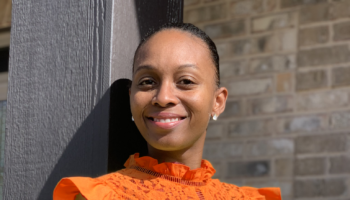Today’s activist is Kathryn (‘Kate’) Barber, whose important research informs on right-wing religious ideologies. We underestimate these toxic ideologies at our peril.
I’m Kate Barber, a mature PhD student at Cardiff University, studying in the Centre for Language and Communication Research. I am back behind a desk after seventeen years as a lecturer in Further Education and Higher Education institutions and nearly twenty years since I was an undergraduate doing my Law degree. As much as I miss teaching, I am really enjoying the academic challenges that PhD study presents and having the chance to meet others involved in interesting research. I’ve also been able to participate in projects such as ‘Assuming Gender’, a multidisciplinary student-led project based in Cardiff, which examines issues relating to gender in contemporary society.
I’ve been studying in Cardiff for three years now as I did a part-time Masters degree here in Forensic Linguistics before starting my PhD in 2017. During my MA, I looked at linguistic issues relating to anti-Muslim hate speech, sexual violence and harassment, rape myths, and consent in rape cases. Many of these themes also feature in my PhD research as I am currently looking athow rape and sexual assault is reframed by far-right extremists on websites and personal blogs, and how this relates to political and social radicalization. My study involves conducting a corpus-assisted critical discourse analysis on extremist online sites which intersect networks associated with the Alternative Right and those that belong to what’s known as the Manosphere (a group of sites that promote ‘men’s rights’ and issues but which often includes extreme misogynistic and anti-feminist discourses). Interwoven among these networks are numerous sites that tap into extreme right-wing religious ideologies such as those associated with Christian Identity and sites run by groups identifying as Evangelical Christians and Christian Fundamentalists. By looking at how rape and sexual assault is reframed and how narratives about sexual violence on these sites are used, I’m aiming to analyse if and how the ideologies of these different groups overlap and how counternarratives can be constructed to challenge these online discourses.
How do you think the Shiloh Project’s work on religion and rape culture can add to and enrich discussion and action on the topic of gender activism today?
In my opinion, The Shiloh Project is doing invaluable work in bringing discussions about religion and rape culture to the fore, especially in the way it challenges representations of sexual violence in media and within a diverse range of communities. Importantly, the project encourages collaboration between scholars, from a variety of backgrounds and disciplines, who are similarly motivated to challenge sexual violence and rape culture. The Religion and Rape Culture Conference in July 2018 was the perfect example of this and offered a supportive environment within which several issues were explored by an inspiring group of academics.
In the year ahead, how will you contribute to advancing the aims and goals of The Shiloh Project?
The next year involves a lot of data analysis for me but I will be following The Shiloh Project with interest as well as writing a post for their blog and getting involved in some interesting initiatives I heard about during the July conference. Hopefully, I’ll also be able to contribute some insights into the influence of extreme right-wing Christian groups on the rape culture perpetuated by far-right extremists online.







